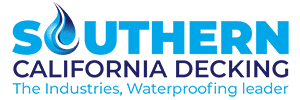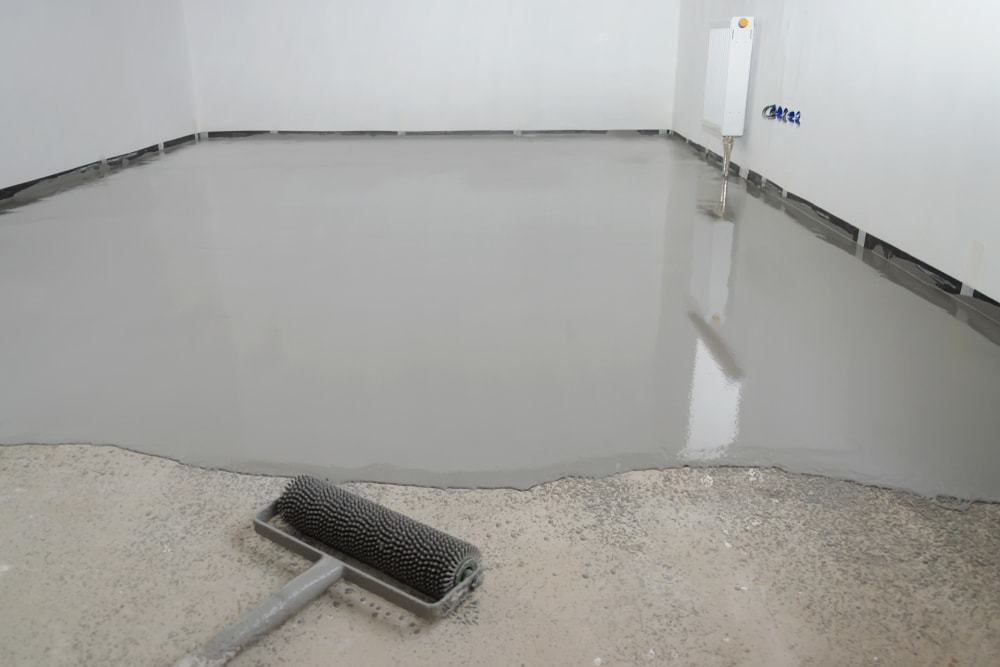Since a long time ago, epoxy floors have gained popularity as flooring material for homes and businesses. You have arrived at the appropriate location if you are just now learning about exactly what it is about. We will cover everything that you ought to understand about it in this blog, discussing what it really is, its benefits and drawbacks, how to gauge its thickness, as well as how long it can last. If you want to know if it is the right option for your flooring needs, keep reading.
What is Epoxy Flooring?
Your floors are protected with epoxy flooring, a unique kind of coating. It is created from a resin and hardening agent mixture that hardens into a coating that resembles plastic. Generally, more than one coat is used, and once it has dried, it leaves behind a sturdy, stain-resistant, and easy-to-clean floor surface. Epoxy floors should generally be at least 2mm thick; otherwise, they are addressed as epoxy floor coatings. Epoxy flooring can be personalized to meet your needs and the beauty of your area by using the color and design of your choosing.
How Long Can Epoxy Floors be Expected to Last?
Epoxy floor coatings are long-lasting once they are installed. The average span is between 10 and 20 years, although it also depends upon whether the surface is a high- or low-traffic region. Your floor will endure even longer with appropriate maintenance and upkeep.
Variations of Epoxy Flooring
You have access to a wide variety of epoxy floor options, including:
Self-Levelling
Self-levelling floors are a prevalent option for areas with high traffic like kitchens as well as living rooms since they are used to provide a smooth, level surface. It is best to use them over concrete floors that have cracks or other problems.
Self-Dispersing
For regions with heavy traffic, such as industrial settings, this choice is perfect. It is extremely robust and long-lasting.
Mortar
Mortar epoxy floorings are constructed of solid epoxies combined with sand that has been graded or quantified, making them the strongest alternative of all. Prior to adding a new layer of epoxy, they work wonderfully for filling in cracks.
Graveled
Graveled floors are among the most complex to install and the most complex type of epoxy that is currently available, but they offer excellent anti-slip qualities. Images, brand logos, and other adornments may be incorporated into their design.
Terrazzo
Epoxy terrazzo floorings are typically installed in big rooms that want an appealing aesthetic. They are primarily decorative.
Anti-Static
It is preferable to pick anti-static epoxy floors in specific work conditions where the electrostatic charge could be hazardous.
Flaked
Flaked floors are chosen for their attractive appearance because they contain colored flaking or shards for a decorative impact. You can pick from a variety of colors to match your preferences. The floor’s surface is slightly roughened by the flakes, which can give it more anti-slip qualities.
Applications of Epoxy Flooring
Epoxy is utilized in a variety of other building and construction-related applications in addition to concrete flooring. Epoxy is utilized by interior designers and builders in a variety of construction-related applications, as well as in the production of materials and goods.
Commercial Applications
Due to its advantages, epoxy floor coating has emerged as one of the most popular options for usage in commercial settings. It is also a cost-effective solution. The best thing is that little downtime is required because it can be implemented fast.
Epoxy Floor Coating for Undercover Parking Garages
On surfaces used for covered parking, nothing appears finer than a professionally finished epoxy floor. In places that can be slippery, non-slip aggregate can be used for a durable epoxy finish to achieve this. A paint application to create defined parking places is perfect to be applied following the epoxy coating finish. Parking spaces may be painted with colourful epoxy that includes insignia painted on them, such as Parents with Prams (Pink), Disabled (Blue), Electric Charging Bays (Green), Seniors (Yellow), etc.
Epoxy Floor Coating for Industrial and Warehouse Buildings
There could be a lot of issues if warehouses contain concrete. Concrete can be penetrated by dust, spilt liquids, oil stains, dirt, and grime, leaving icky, unsightly stains. These difficulties can be fixed by employing an epoxy floor treatment. It is advised that you take the nearby traffic into account while selecting the flooring for your industrial facility, factory, or warehouse. Fast-moving environments and high-traffic areas are ideal locations to apply the epoxy floor coating.
A pedestrian promenade, a bike lane, a pallet storage space, and a forklift movement area are just a few examples of the kinds of regions you may separate with an epoxy floor coating. Maintaining automobiles and pedestrians in clearly defined regions and highlighting the interaction between the two, can improve your safety measures.
Epoxy Floor Coating for Offices
Epoxy floor coatings are a possibility for offices. Because of the surface’s strong durability and striking aesthetics with a variety of colours and treatments, it would be a great choice. The epoxy floor coating’s primary plus is how simple it is to keep clean and maintain.
Epoxy Floor Coating for Gymnasiums
Because of features like slip-resistance, ease of cleaning, and most importantly, its ability to liven up a plain concrete floor, it is a preferred choice for gyms. Using a gloss colour and eye-catching design possibilities, you may even give your gym floor a distinctive aesthetic identity. This can entail dividing up specific exercising spaces.
Residential Applications
Epoxy floor coatings can be used in residential as well as commercial buildings. However, using professional applicators is strongly advised.
Epoxy Floor Coating for the Kitchen
Kitchen hygiene is a topic we discuss frequently. Your kitchen may be more resistant to bacteria and germs thanks to the antimicrobial chemicals in epoxy coatings. You could find that sanitising is even simpler now. It can tolerate high heat and oil spills in addition to having anti-slip qualities.
Epoxy Floor Coating for Home Garages
Many various chemicals, oils, gasoline, cleaners, and transmission fluids can be found in a garage. Epoxy, on the other hand, resists them all. Make sure to clean up any contaminants on the floor before laying the epoxy floor surface. It is suggested to use a primer and then apply two layers of epoxy on areas where additional protection may be necessary.
Benefits of Epoxy Flooring
There are various advantages to opting for epoxy flooring for your property or business, including the following:
The Surface is Seamless and Easily Cleanable
Such as with tile or any other forms of flooring, epoxy has no fissures, joints, or ridges because it is poured into place. By doing away with cracks and crevices where dirt and bacteria might hide during cleanings, epoxy becomes a more hygienic flooring solution. For medical clinics or food plants, an antimicrobial ingredient can improve sanitation to a new level. Additionally, because of its smooth surface, forklifts or hospital gurneys may move over more easily without being jostled or hampered by floor seam bumps.
Resistant to Water and Stains
Epoxy flooring is resistant to stains and moisture. Unlike laminate, wood, or any other forms of flooring, epoxy does neither distort nor stain as a consequence of water damage. Spills are unavoidable, but they are relatively simple to clean up after, and they rarely leave stains.
Durability
Epoxy is the most resilient type of flooring. The chemical mixtures provide an impact-resistant floor that is ideal for handling shock, heat, heavy machines and more without fretting about fissures as well as wear and tear. A chemical company can utilise the flooring since it is sturdy enough to withstand spillage of chemicals.
Appearance
Epoxy flooring is a desirable alternative for a wide range of structures because of its shiny, seamless, and smooth appearance. Epoxy flooring comes in a variety of lovely shades that are ideal for hotel ballrooms or sports stadiums.
Cost Efficiency
Epoxy flooring is also quite affordable, which is another advantage. Compared to other flooring types, the per-square-foot cost is considerably lower. Understanding that the flooring will not need to be changed for many years and just requires minimal upkeep is the real deal.
Resilience
When it comes to flexural rigidity, most epoxy floorings are more than three times tougher than concrete, which is often less than 3,000 psi. Epoxy flooring is designed to endure heavy machinery, intense traffic, and extreme temperatures, such as those present during food processing. Nothing is more durable than epoxy flooring!
Safety
Any business should have safety as its top priority. Epoxy flooring can have an anti-slip coating added, eliminating the risk of slips and injuries. This is a fantastic safety measure in areas where there is a lot of pedestrian or machine traffic. Epoxy flooring also has a high level of visibility and does not have any unnoticed lumps or fissures that could be dangerous.
Eco-Friendly
Epoxy flooring poses no threat to the environment in terms of erosion or environmental pollution. Furthermore, the installation generates less wastage than all the other kinds of flooring. There is no need for strong cleaning agents because it is not porous. All of these elements work together to make epoxy floors a green choice.
Simple to Maintain
Epoxy flooring is among the simplest types of flooring to keep clean. It is non-porous, does not chip or crack, and will last for years.
Conclusion
For floors made for industrial use, epoxy flooring is the top choice. They are durable, and attractive, and offer a variety of alternatives, including anti-slip coatings. Take the time to read this article before selecting if epoxy flooring is the best option for your company’s requirements.



